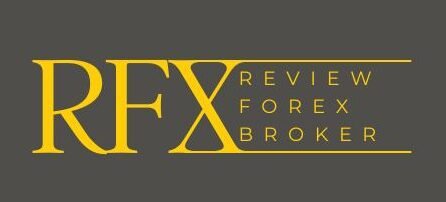When choosing a forex broker, one of the most overlooked aspects is the broker’s terms and conditions. These documents, often filled with complex legal jargon, contain crucial information that can affect your trading experience. Hidden within the fine print, you might find red flags that signal potential risks or unethical practices. In this blog, we will explore the key red flags to watch out for in a forex broker’s terms and conditions and how to protect yourself from falling victim to unfair policies.
1. Unclear or Vague Fee Structures
A major red flag in a broker’s terms and conditions is an unclear or ambiguous fee structure. While it’s common for brokers to charge spreads, commissions, or withdrawal fees, these should be clearly stated upfront. Vague terms regarding costs can indicate that the broker may add unexpected charges, making it more expensive for you to trade.
- What to Watch For:
- Hidden or unlisted fees, such as inactivity fees or high withdrawal charges.
- Unspecified “administrative” fees or penalties for certain actions.
- Non-transparent spreads, where the terms leave room for manipulation.
Tip: Look for a clear fee schedule or cost breakdown on the broker’s website, and ensure it matches what is written in the terms and conditions.
2. Unreasonable Withdrawal Restrictions
One of the most frustrating experiences for traders is having difficulties withdrawing their funds. Scam brokers may include withdrawal clauses in their terms and conditions that make it nearly impossible for traders to access their money. These tactics are common among fraudulent brokers who aim to trap your capital within their system.
- What to Watch For:
- Long withdrawal processing times (anything more than five business days could be a concern).
- Excessive minimum withdrawal amounts or withdrawal fees.
- Requirements to submit excessive documentation that makes withdrawing funds a lengthy and complicated process.
- Limitations on the frequency of withdrawals.
Tip: Read the withdrawal policy carefully, and if you see too many hurdles, reconsider whether the broker is trustworthy.
3. Restrictions on Bonuses and Promotions
Forex brokers often offer bonuses to attract new traders, but these bonuses come with terms and conditions. While some bonuses can genuinely benefit traders, others can trap you in a cycle of trading volume requirements that are difficult to meet, making it harder to withdraw profits.
- What to Watch For:
- High-volume trading requirements to unlock bonus funds.
- Clauses that require you to trade a certain amount before you can withdraw any funds, including your deposit.
- Terms that allow the broker to cancel or void the bonus at any time without notice.
Tip: Be cautious when accepting bonus offers and read the fine print. Ensure that accepting the bonus won’t restrict your ability to withdraw your own funds.
4. Unfair Dispute Resolution Policies
The terms and conditions often outline how disputes between the broker and the trader will be handled. If the broker’s dispute resolution policies are skewed in their favor, it’s a serious red flag. Some brokers may include arbitration clauses that restrict your ability to take legal action or choose a biased arbitrator.
- What to Watch For:
- Clauses requiring disputes to be settled in a foreign country or through an unfamiliar arbitration process.
- Limited recourse options for traders if the broker breaches the agreement.
- Policies stating that the broker has the final say in all disputes, regardless of fault.
Tip: Look for brokers regulated by a trusted financial authority. Regulated brokers are subject to strict standards for handling disputes, which provides an added layer of protection.
5. Unilateral Changes to Terms
Another key red flag is a clause that gives the broker the power to change the terms and conditions unilaterally, without notifying traders. This could allow the broker to modify fees, withdraw policies, or trading conditions whenever it suits them, leaving you vulnerable to unexpected changes.
- What to Watch For:
- Clauses that state the broker can change fees, spreads, or conditions at their discretion.
- A lack of obligation to notify traders of changes.
- Terms that absolve the broker from any responsibility to provide notice before implementing changes.
Tip: A reputable broker should always notify you of significant changes and allow you the opportunity to withdraw funds if the new terms are unfavorable.
6. Excessive Leverage Offerings
Leverage is a double-edged sword in forex trading—it can magnify both profits and losses. Some brokers offer extremely high leverage ratios, which may sound appealing to new traders, but they can also be a sign of a risky or unregulated broker. While many regulated brokers offer leverage within a safe range, unregulated brokers may offer dangerously high leverage as a lure.
- What to Watch For:
- Leverage offerings above 1:500, which is typically higher than what most regulated brokers would offer.
- Terms suggesting the broker offers different leverage levels depending on the account type, but with unclear details on how this works.
Tip: Research the leverage limits set by regulators in your country and ensure the broker’s leverage offerings align with those guidelines.
7. Limited Regulatory Information
Regulation is one of the most critical aspects of a forex broker’s legitimacy. A broker’s terms and conditions should clearly state the regulatory authority they fall under and provide their license number. If the terms and conditions fail to mention this information, or if the broker is regulated by an obscure or weak authority, you should be cautious.
- What to Watch For:
- No mention of regulation or licensing.
- Regulation under offshore or little-known jurisdictions with lax oversight.
- Discrepancies between the regulation claims on the broker’s website and the details in the terms and conditions.
Tip: Always cross-check the broker’s regulatory claims with the regulatory authority’s website. If you can’t verify the broker’s license, it’s best to steer clear.
8. Trading Platform Manipulation Clauses
Some fraudulent brokers include clauses in their terms and conditions that allow them to manipulate their trading platform or your trades. These brokers may reserve the right to re-quote prices, widen spreads, or freeze your account under certain conditions. This is a major red flag, as it indicates the broker may interfere with your trading to their advantage.
- What to Watch For:
- Clauses that allow the broker to adjust spreads or prices at their discretion.
- Terms that state the broker has the right to reject trades without explanation.
- Policies allowing the broker to suspend or freeze your account without a valid reason.
Tip: Look for brokers that offer clear, transparent, and fair trading conditions, and avoid any broker that reserves the right to manipulate trades.
Conclusion
The terms and conditions of a forex broker are more than just legal jargon—they are the foundation of your trading relationship. By carefully reviewing and understanding these terms, you can protect yourself from falling victim to shady practices and scams. Watch out for red flags such as unclear fees, withdrawal restrictions, excessive leverage, and lack of regulation, and always ensure that the broker you choose aligns with regulatory standards. Remember, taking the time to scrutinize the fine print today can save you from costly headaches down the road.

